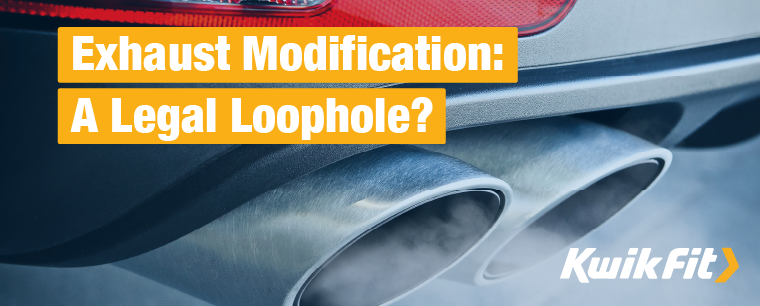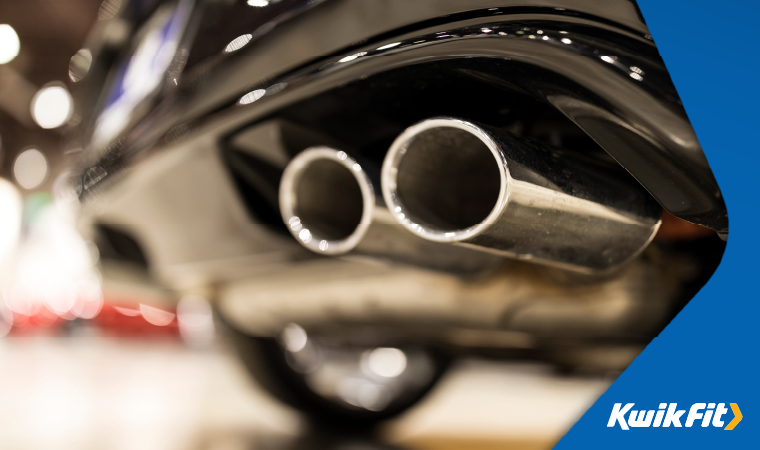Exhaust Modification: A Legal Loophole?
Jack Dreyer | Monday 26th February 2024 8:00am

Whenever you take your car in for repairs or a service, you try not to think about the worst. Perhaps youíre focused on getting to work, getting the kids to school, or just passing that MOT so you can go on holiday, but you might not consider that more than your daily plans could be at risk of serious disruption. Youíd like to think you can trust the person who is working on your vehicle, even if that person is yourself.
Recently, however, a Wakefield-based workshop was found guilty of carrying out illegal alterations to a car, and was fined £7,234 by the Driver and Vehicle Standards Agency. The alteration in question was the removal of a catalytic converter and a modified engine control unit to increase noise levels. Fundamentally, it was declared illegal to drive on a public road following the work.
The recent case has exposed a grey area in the law which would allow drivers to pass an MOT but would not satisfy the emissions limits set on a carís exhaust. These kinds of exhaust modifications, therefore, could put a driver at risk of having an unroadworthy car - and anyone who modified the car at risk of a hefty fine.
What is the grey area around exhausts?
A de-cat exhaust is a straight pipe which replaces the carís catalytic converter. Removing the catalytic converter is popular amongst car enthusiasts who want to increase their horsepower and overall engine performance. However, the catalytic converterís primary purpose is to essentially filter gaseous waste, and therefore removing one produces more emissions and, on a practical level, can lead to overheating of the engine, imbalances in the air and petrol mix - which upsets the engine - too much noise, and bad smells wafting across the street.
For these reasons, de-cat exhausts on road-going cars are illegal. Many of these issues can also occur if you have a problem with your catalytic converter or exhaust too, so if you are experiencing any of these symptoms itís best to get it checked before you encounter further complications.
The loophole which was exposed by the recent fine is due to a system that doesnít remove the catalytic converter, but instead replaces it with a sports catalytic converter that can achieve near enough the same performance results. This will pass an MOT as long as the system is EC-marked, and the carís emissions are within the low-running engine limit - but when driving outside, it will likely produce more exhaust emissions that exceed the vehicleís type approval limits.

Whilst an MOT will make sure that the catalytic converter is still in place, running well and not producing too many emissions with a low-running engine, a vehicle type approval test will be more thorough in checking exhaust emissions within a number of different conditions - and can detect excessive emissions more effectively. To add to this, a police officer can warrant the removal of any vehicle they feel is producing excessive amounts of pollutant gas or noise.
So, whilst a sports cat modification might pass an MOT, it could fail a type approval test or come under the scrutiny of the police. If you have fitted this yourself, you could lose the ability to drive your car on public roads and face a fine all in one foul swoop.
Aftermarket exhausts and modifications

Getting an exhaust modification is fairly straightforward and not illegal in itself. As long as modifications stay within legal guidelines and now, with the new awareness to the loophole, the vehicle type approval test, then there arenít legal ramifications around fitting an aftermarket car exhaust.
Itís important to make sure that you are aware of the product you are buying and the potential effect it will have on your car. Namely, exhaust emissions, noise and engine health. Make sure you keep your exhaust and catalytic converter well checked, and ensure youíre up to date with which modifications are illegal and why there are regulations and checks on emissions.
Sometimes the law can feel like it changes every five minutes, and loopholes like these result in more for drivers to think about. In this unfortunate case, a driver now has a car which they canít drive on public roads, and the fitter was fined and possibly had their reputation tarnished.
MOTs, services and modifications are best left to professionals who are aware of the law and keep up to date with all regulations and potential challenges. Passing an MOT is one thing, but do you know the other complications that can arise after your car has left the centre?
If youíre ever in doubt, go to a qualified and regulated professional. If you would like to know more about your exhaust and catalytic converter, donít hesitate to get in touch with your local Kwik Fit centre for impartial advice.
Any facts, figures and prices shown in our blog articles are correct at time of publication.
Featured Articles
Is it Illegal to Drive With One Headlight?
Saturday 19th July 2025
Wondering if itís illegal to drive with one headlight? Learn about the safety risks and penalties of illegal blown bulbs and why you should fix them promptly.
Air Con in EVs & Hybrids: Experts Answer Your Questions
Monday 30th June 2025
Does air con drain EV batteries? Can you use the air con while charging an electric car? Find out the answers to these questions & more from Kwik Fitís experts.
Why Is Your Car Making a Noise? Fixes & Tips
Friday 13th June 2025
When your car starts making unexpected noises, it can certainly be quite disconcerting; it may be nothing to worry about, but hereís what you need to know.









